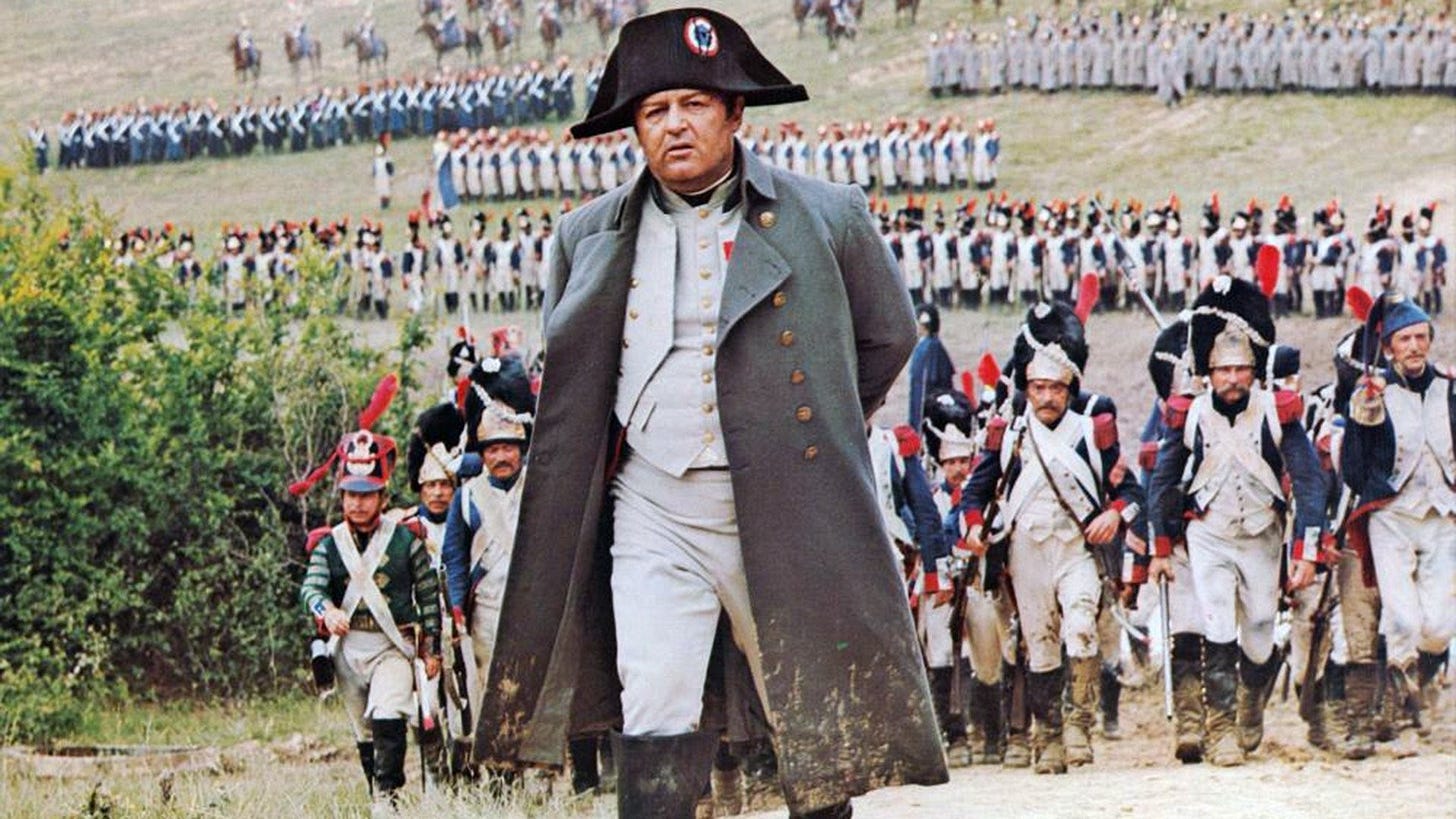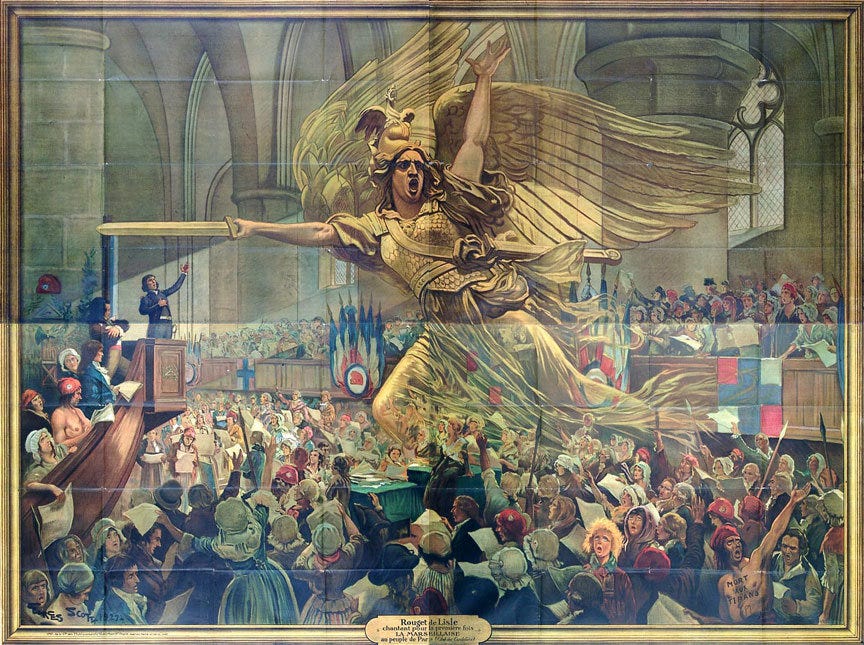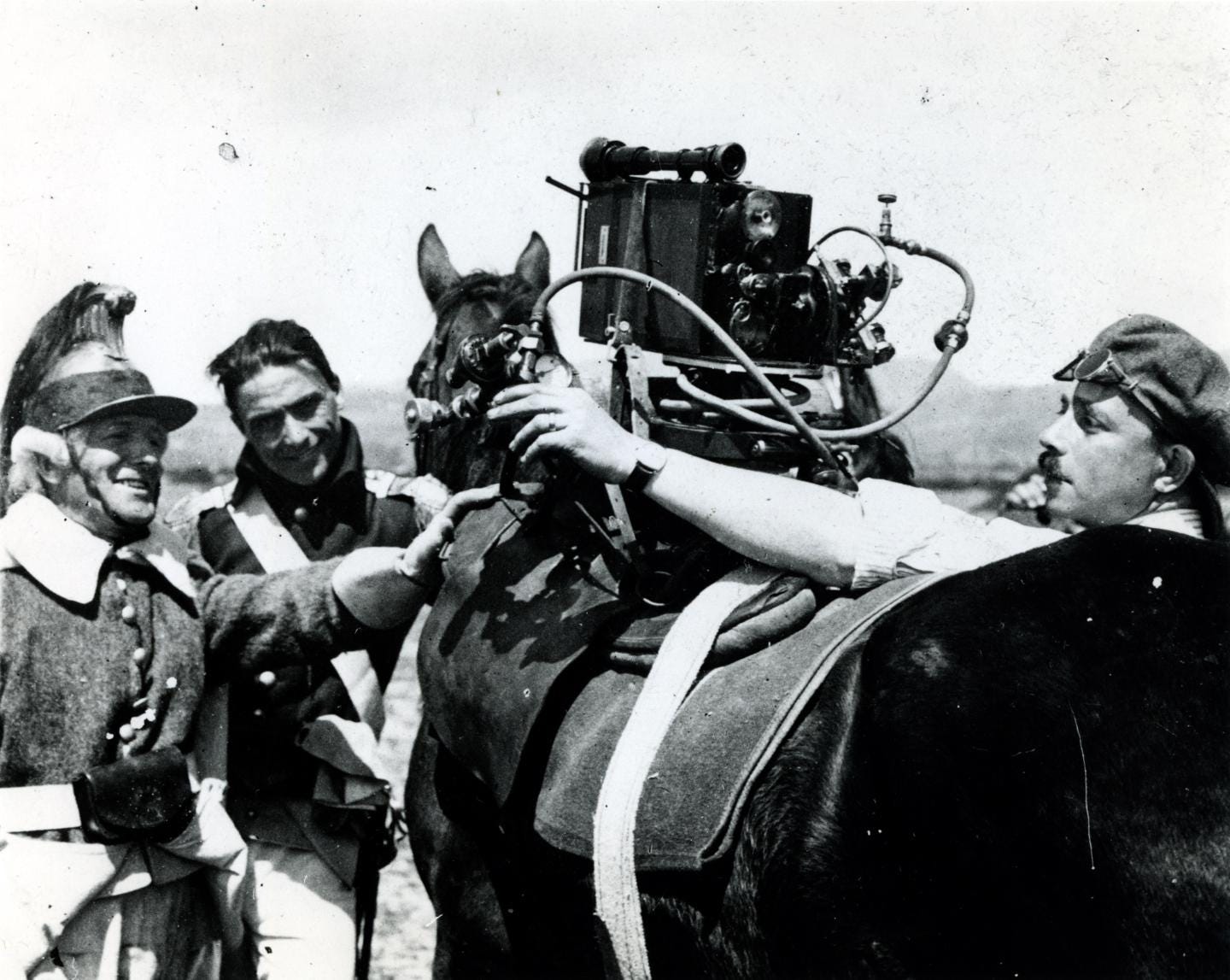The Other Napoleon Film
Nearly a century later, Abel Gance's epic 1927 silent movie is still the best biopic of the French emperor.
Ridley Scott’s 2023 film about the life of Napoleon Bonaparte was an unfortunate disappointment that largely failed to accurately depict the life of its titular subject.
Though admirable for being a rare modern Hollywood film to dedicate such a huge budget to a historical epic set in the 18th and 19th centuries, Scott’s take on the French emperor was frustrating for its blatant disregard of the facts and downright confusing for its odd casting choice of Joaquin Phoenix.
Phoenix passably looks the part as Napoleon, but he never feels confident in the role. I found him shockingly lifeless with almost no emotional depth, and we’re talking about one of the most monumental men who ever lived. Yet here he’s reduced to a bland, two-dimensional cardboard cutout who occasionally busts out a tantrum which Scott seems to think is a substitute for genuine human feeling.
Napoleon being such a controversial figure in today’s age meant that it was unlikely that any Hollywood movie would depict the man in a positive light, but the Napoleon in Scott’s world is such a petulant adult child, he’s far closer to the Bill and Ted incarnation than the actual general. The real Napoleon was highly intelligent and had a deep appreciation for art, science, and culture. We hardly see any of that here.
Stanley Kubrick famously planned to direct his own epic biopic of Napoleon, which unfortunately never came to fruition, though some of his concepts did end up transferring over into Barry Lyndon due to the similar time period. 2023’s Napoleon is a far cry from that vision, and it seems unlikely that anything close to what Kubrick wished to achieve will happen anytime soon. With that said, there have been far superior works adapting Napoleon Bonaparte’s life in the past.
Well-remembered today is Waterloo, an absurdly expensive epic 1970 war film which primarily focused on the final campaign that ended Napoleon’s military career in defeat. Though sometimes criticized for its pacing, the performances of Rod Steiger, Christopher Plummer, and Orson Welles are generally praised, as is the huge scale of the film’s military battles. While not perfect, it’s certainly far more historically accurate than Ridley Scott’s movie and holds up well as many’s go-to Napoleon on the silver screen.
Désirée in 1954 featured Marlon Brando’s take on Napoleon, though the rather obscure picture is remembered for little else other than his performance. Napoleon has also played supporting roles in films like War and Peace and The Count of Monte Cristo, but if one wants something that is more comprehensive in covering his overall life, the 2002 French television mini-series is probably the best we’re ever going to get.

When it comes to cinematic adaptations, however, nothing has come close to beating Able Gance’s epic silent film Napoleon. Released in 1927 when the silent era was coming to its end, Gance created a masterpiece that was years, if not decades ahead of its time with its scope, structure, pacing, and fast-cut editing. Running anywhere from under three hours to over nine depending on the version, Napoleon was intended to be the first of six films adapting the entirety of the emperor’s life.
Despite being a huge creative achievement and Gance’s magnum opus, Napoleon would be subject to numerous cuts, have its excised footage lost, and be surrounded by a plethora of complicated legal issues that still affect the film’s distribution status across multiple countries to this very day. Practically everything about the 1927 silent film Napoleon is complex and daunting, but it remains a thrilling cinematic experience unlike anything ever created before or since.

Eagle of Destiny
Abel Gance’s original script for his vision of Napoleon ended up being the size of a large novel, but he knew going into production that his intended plan for six films was never going to come to fruition. Despite this, it is clear that Gance put everything he could into his single Napoleon film, with its longest known cut being nine hours and 22 minutes, but more on that later.
Gance’s film begins in the winter of 1783 with a young Napoleon Bonaparte’s early years enrolled at military school and ends at the April 1796 Battle of Montenotte with his triumphant victory over the Habsburg monarchy and Kingdom of Sardinia in what is now modern-day Italy. With Gance’s wise choice to keep the timeline to this span of only 13 years, what we essentially have is a Napoleon Bonaparte origin story. There is no Egyptian military campaign, no self-crowning as emperor of France, no Waterloo, and no exile to Saint Helena.

The smaller scale allows Gance to provide more focus on the formative events which shaped Napoleon, while most other films would gloss over them due to time constraints. The opening scene for example features Napoleon’s legendary snowball fight with his fellow schoolmates. Despite the low stakes, Gance treats the event with the same zeal and intensity as if it was any one of Napoleon’s later battles. With fast-paced cuts, groundbreaking handheld camera work, and constant closeups to Napoleon’s facial expressions, it’s a whirlwind of activity that captures the audience from the very beginning.
As explained in this BFI piece, Gance came up with innovative ways to move his camera equipment, which we have to keep in mind today was meant to be immobile due to its sheer size. But Gance learned to overcome these limitations such as angling mirrors in front of his lens to create the illusion of movement or mounting the entire rig on a toboggans, horses, and cars. Such techniques are why Napoleon is still a completely watchable film almost a hundred years later. This was years before even Orson Welles pioneered cinematography with Citizen Kane, showing that Gance was always a man who thought about the future of his medium. Indeed, ambition and visions of the future are central themes to Napoleon.
Though the film is ostensibly about his early victories, the Napoleon we see is always thinking about glory and what lies ahead of him. The young boy takes care of an eagle during his time at the military academy. After he is bullied by other students in his dormitory who free the bird (the real Napoleon notoriously did not get along with his classmates), he is thrown out into the cold and weeps for the loss of his pet while lying on top of a cannon. Yet in one of the film’s most iconic scenes, the eagle returns to him, and Napoleon is struck with a new resolution to pursue success even in the face of bitter losses.





